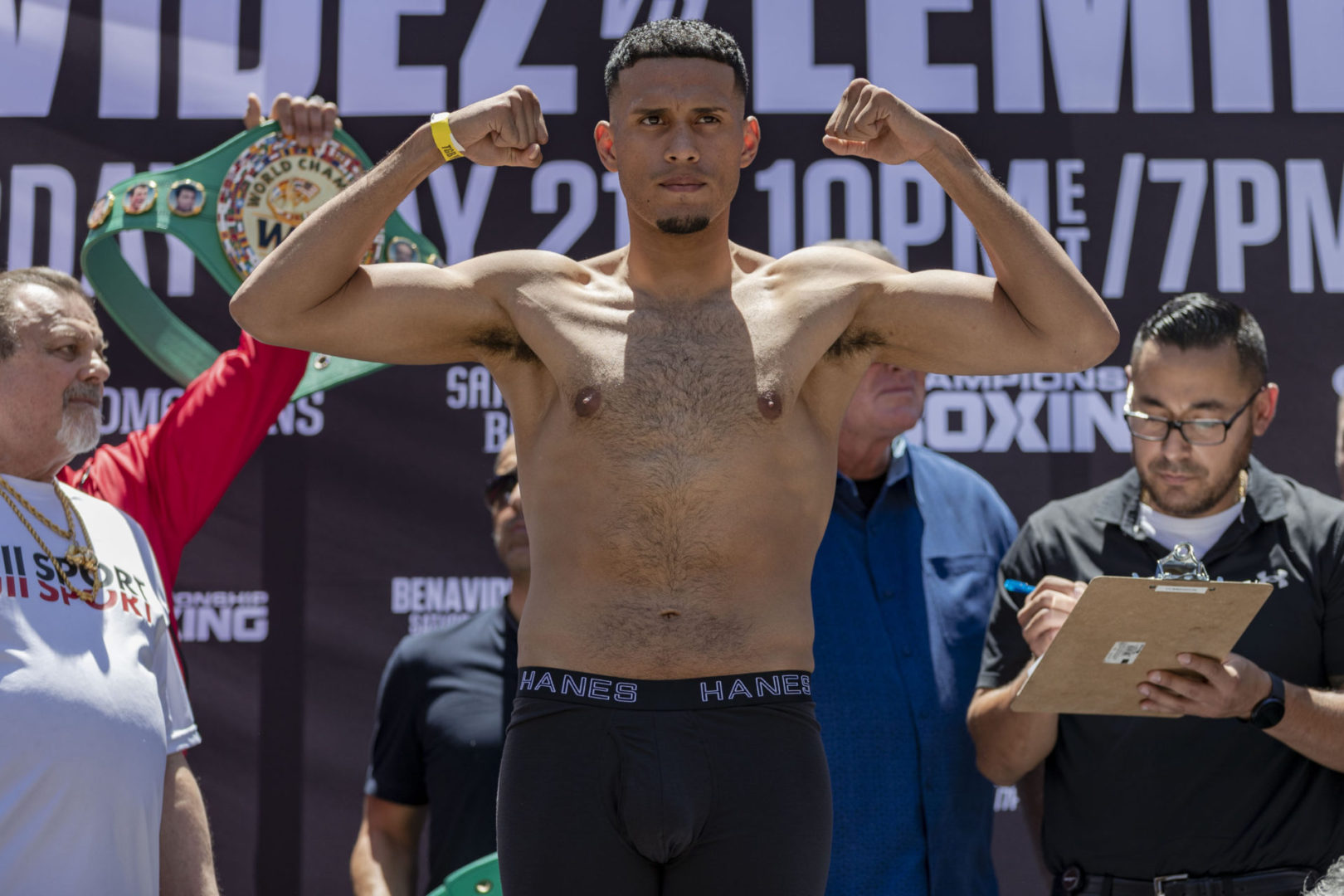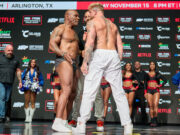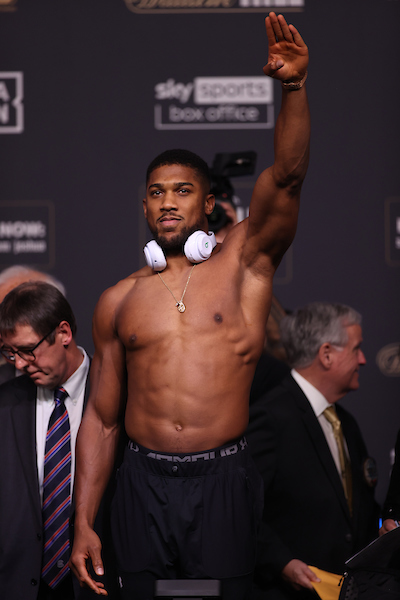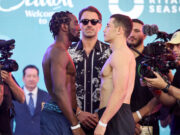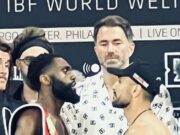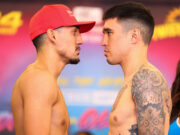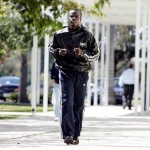
Timing and circumstances haven’t been kind to Joshua Clottey. He isn’t Floyd Mayweather, Jr., the welterweight everybody wanted to see against Manny Pacquiao on March 13.
Instead, Clottey has been cast as the substitute, which to a cynical public only means he isn’t Mayweather and he doesn’t have a chance against Pacquiao on a night when Cowboys Stadium in the Dallas metroplex might be the biggest attraction.
If he doesn’t feel like last season’s Detroit Lions or St. Louis Rams, then Clottey knows what it is to have been one of those replacement players in the last NFL work stoppage. In 1987, none of those guys belonged there and that’s exactly what you hear and read these days about Clottey. Pacquiao is supposed to kick him around like the soccer ball Clottey used to chase as a kid in Ghana.
Fair? I don’t think so. Then again, I’ve been wrong about these things before. I actually thought Juan Manuel Marquez was skilled, smart and tough enough to challenge Mayweather. After watching Mayweather humble Marquez through 12 one-sided rounds in September, I wondered if I had been kicked in the head one too many times.
Nevertheless, I like Clottey, perhaps not enough to pick him over Pacquiao, especially without a familiar trainer in his corner. He split with Kwame Asante after his loss by split decision in June to Miguel Cotto over a reported disagreement over money. Then, Godwin Kotay, also of Ghana, was denied a U.S. visa. Instead of Asante or Kotay, cut-man Lenny DeJesus will take the lead in Clottey’s corner.
In front a potential crowd of 45,000 and against Pacquiao’s varied skills and dangerous power, an unfamiliar face in the corner looms as a problem, especially when – not if – Clottey is in trouble.
Still, Clottey’s size, strength and durability are enough to make it difficult for Pacquiao, whose motivation could have taken a hit when an agreement to fight Mayweather fell apart because of demands that the Filipino icon undergo Olympic-style blood-testing for performance-enhancers.
Pacquiao also will jump directly into a rough-and-tumble political campaign in the Philippines after the fight.
In part, the public’s lack of any respect for Clottey might be a spillover from disgust at the abortive negotiations for Pacquiao-Mayweather. Fans and media are still angry. What they have forgotten, however, is just how close Clottey came to an upset of Cotto in front of the Puerto Rican’s loyal New York fans at Madison Square Garden.
“I did not lose the Cotto fight,’’ Clottey said Thursday during a conference call from his training camp in Fort Lauderdale, Fla.
Maybe not.
But Clottey also didn’t do enough in the last couple of rounds to convince anybody at ringside that he deserved more than a draw. That, like the victory he still thinks he deserves, eluded him. Clottey has been criticized for not throwing enough punches, which could quickly leave him with a deficit on the scorecards against Pacquiao’s whirlwind pace. But he is confident he can make his power count.
“I am not a flyweight,’’ Clottey said during the conference call, which will be followed by one Friday with Pacquiao. “I’m not a bantamweight. I’m a welterweight. I throw punches that connect.’’
As a natural welterweight, unlike the smaller Pacquiao (5-foot-6 ½), the 5–8 Clottey might have enough leverage to inflict some damage. Before Pacquiao’s 12th-round stoppage of Cotto in November, the Filipino’s trainer, Freddie Roach, said Clottey’s punches almost made Cotto quit during the ninth round.
“The more I play it over, the more I realize how competitive this is and that nobody with any certainty can predict the result,’’ said Top Rank’s Bob Arum, who promotes both fighters. “Everybody knows how Manny Pacquiao fights. Everybody knows the angles from which he throws punches.
“And everybody knows that Joshua Clottey is a tremendous defensive fighter and can put a real hurt on an opponent. And everybody knows that Joshua Clottey is the bigger man and Manny is the smaller man. There is talk about Manny going up in weight. But he really hasn’t. He couldn’t make 130 pounds anymore, He fought at 135. He was 138 when he fought (and knocked out) Ricky Hatton.
Now, he goes into the ring at 142 or 143 pounds on the scale and that’s not because he’s putting on weight. That’s because he has breakfast and lunch before the weigh-in. If he had to, he’d still make 135 pounds. So, the idea that he’s a big man is just not true.
“Joshua has the size. He’s the natural welterweight. Manny Pacquiao isn’t. That’s the intrigue in this fight.’’
The intrigue, at least, doesn’t include more of the noisy debate about blood-testing for performance-enhancers. Clottey, ever the gentleman, said he did not and would not demand the Olympic-style testing that Mayweather says he and every one of his future opponents, including Shane Mosley on May 1, will undergo.
“No, I don’t want to do that, because I respect him so much,’’ Clottey said. “He is a very nice guy. I feel comfortable around him. He’s respectful of everybody. I don’t think Manny Pacquiao did that thing. I trust him.”
If only, Clottey could enjoy some of that same trust. He’s not Mayweather. But, trust me, he’s a better fighter than people think.



